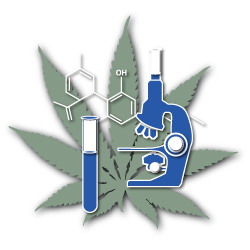

Manage Your Symptoms
http://csatc.org Compassionate Sciences Alternative Treatment Center - New Jersey Medical Marijuana Dispensary Compassionate Sciences Alternative Treatment Center is a New Jersey State-recognized designated dispensary of medicinal marijuana.


Manage Your Symptoms

Cannabinoids are primarily responsible for the plant’s therapeutic and psychotropic properties.
Science has identified as many as 80 cannabinoids.
Figure 1
Common Cannabinoids

Cannabis produces a unique class of chemical compoundsA substance of two or more elements in fixed proportions. Compounds can be decomposed into their constituent elements. called cannabinoids which are considered primarily responsible for the plant’s therapeuticOf, or relating to, the treatment of disease or disorders by remedial agents or methods. and psychotropicHaving an altered effect on perception, emotion, or behavior. properties. Cannabinoids are hydrocarbonsOrganic compounds containing carbon and hydrogen. that consist of bound hydrogen, carbon and oxygen atoms (Fig. 1 Common Cannabinoids). To date, as many as 80 cannabinoids, with ongoing research uncovering new versions of the compound.
THC is the best known cannabinoid due to its psychotropic effect on the human brain, the sensation of a euphoric “high.” The amount of THC in Cannabis can vary greatly, from 0.3 to 25%. The plant has been cultivated extensively to produce potent strains laden with THC. However, the therapeutic benefits of Cannabis are not limited to THC. Other cannabinoids that have medically-beneficial effects include CBD (cannabidiol) and CBN (cannabinol). Research suggests that a considerable share of the medicinal value of Cannabis may be found in the non-THC cannabinoids and other compounds, such as terpenes.Any of various unsaturated hydrocarbons, C10H16, found in essential oils and oleoresins of plants such as conifers and used in organic syntheses.
The word cannabinoid is often used as shorthand for a large class of similar compounds called phytocannabinoids.Natural cannabinoids that are known to occur in significant quantity only in Cannabis. These compounds are produced as acidic versions which do not, without pretreatment, produce pharmacological or psychotropic effects. However, a growing body of research suggests that acidic compounds may have therapeutic value. Acidic cannabinoids are activated in a process known as decarboxylation.The process of removing the carbon element (carboxyl group) of a molecule, usually by replacing it with hydrogen, which occurs when Cannabis is subjected to heat, light or both.
When activated, acidic cannabinoids such as THCA, CBDA, CBNAThe “A” designates an acidic compound. are transformed into the biologically-active cannabinoids THC, CBD and CBN. Only in this form does the compound produce pharmacological or psychotropic effects in the body. However, while cannabinoids are very lipid-solubleThe ability of a chemical compound to dissolve in fats, oils, lipids (fatty or waxy organic compound) and non-polar solvents., they are almost insoluble in water. As a result, the activated ingredients of Cannabis are typically inhaled as smoke or vapor, consumed in foods or absorbed through the skin in salves or tinctures.An alcohol solution of a nonvolatile medicine.